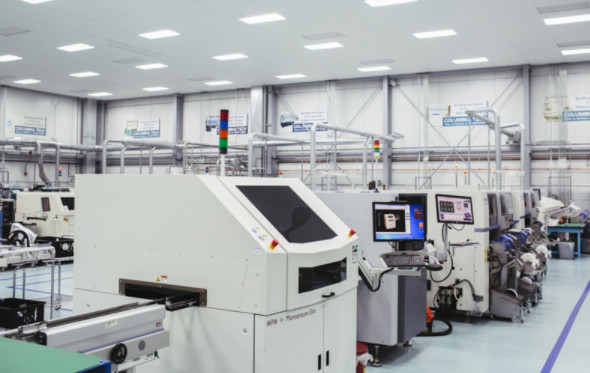To determine the reliability and competency of a PCB Assembly manufacturer, you can make a preliminary judgment by checking the qualifications obtained by the PCBA manufacturer and by reviewing the capabilities and production equipment. In this article, I will discuss in detail which qualifications and technical capabilities are the most important.
1. ISO 9001 certification
The most popular ISO standard, ISO9001 is the international quality management standard among manufacturers. The latest revision is ISO 9001:2015.
An organization with ISO9001 certification has demonstrated its ability to consistently produce products and services to meet regulatory requirements. The ISO9001 standard covers the maintenance and development of quality management systems, management of resources and the work environment, and product realization from design to delivery. Certification to the ISO 9001 standard can enhance an organization’s credibility by showing customers that its products and services meet internationally recognized expectations.
2. ISO 13485 and IATF16949 industry-specific certifications
For certain industries, such as medical, aerospace, automotive and military industries, basic ISO 9001 is not sufficient to meet their higher safety and quality requirements. That is where industry-specific certifications are used to demonstrate tighter quality management capabilities required by the respective industry.
For medical devices, a manufacturer can qualify for ISO 13485 certification (currently in its 2016 edition), which represents the requirements for a comprehensive quality management system for the design and manufacture of medical devices. ISO 13485 focuses more on the processes influencing safety and hygiene rather than customer satisfaction.
For the automotive industry, the technical specification IATF 16949 (currently in the 2016 revision) is based on rules issued by the International Automotive Task Force (IAT) and was prepared in conjunction with ISO. IATF16949 emphasizes defect prevention and the reduction of variation and waste in the automotive industry supply chain and assembly process.
Compared to ISO9001, ISO13485 and IATF16949 have stricter requirements tailored towards the industry it is designed for to improve safety and improve customer satisfaction.
3. Export qualification certification (UL certification)
The Underwriters Laboratories (UL) organization maintains an array of quality standards for the US, covering various parts used in electronic devices from plastics, cables to the materials that go into making PCB boards, as well as the entire assembly process. It is approved by the US federal agency, OSHA, to perform safety testing. Its European counterpart is CE.
Unlike ISO, UL is product-specific and its primary focus is safety. Products show UL compliance by having the “Recognized Component Mark”, more commonly referred to as the UL mark, printed on the component. For PCBs, the UL mark can be applied onto the board, specifically UL 796, UL 746, and UL 94 which are indicators of the fire safety rating of the plain PCB boards.
4. Technical capability and capacity
A PCBA facility is no use if they can’t produce your device. When selecting a PCB assembly partner, it helps to determine the volumes they can produce and whether their capabilities encompass most of your present and future needs.
As well as production capability, such as whether the manufacturer accepts double-sided or through-hole assembly, the types of PCB substrates, soldering methods etc., one should also consider the quality assurance procedures and equipment available.
For mass production of high-value products, it is wise to consider Automatic Optical Inspection (AOI), in-circuit-testing (ICT), functional testing and if there are BGAs on your design, x-ray inspection in your production run. For smaller batches or prototyping, the volume may not warrant the higher costs and long preparation time. Other additional capabilities to consider include conformal coating, programming and pre-production design review.
Once the above factors have been determined, one may consider the brand and specification of the equipment. Machines by established Japanese and Korean brands such as Juki, Fuji, Hitachi, Samsung and Panasonic are renowned for having lower misplace rates, higher speeds and better accuracy, which can reduce defect rates and re-work times.
5. Other considerations
Outside of the production line, customer service and procurement are also important factors when selecting a PCBA partner, especially if consigning parts procurement to your manufacturer as well. The annual procurement volume and the strength of the supply chain can affect the prices a turnkey facility has access to. Larger facilities may keep stocks of commonly used parts such as Seeed’s Open Parts Library (OPL), which houses parts that are available immediately and at lower costs.
As with any service, the quality of the customer service can make or break a partnership. A good partner should be able to communicate issues at any stage of production promptly, have strong backing from engineers and be able to provide continued after-sales support.
Seeed has more than 12 years of experience in the field of electronics manufacturing. Equipped with ISO9001 and with access to ISO13485 and IATF16949 certified production facilities, Seeed has been endorsed by many customers in many different industries around the world. Seeed is more than capable of providing affordable and high-quality PCB manufacturing and assembly services for your electronic design. In addition, we also provide a one-to-one customer support service. Our mission is to help grow your inspirations into differentiating products, by providing accessible technologies with quality and delivery guaranteed.
